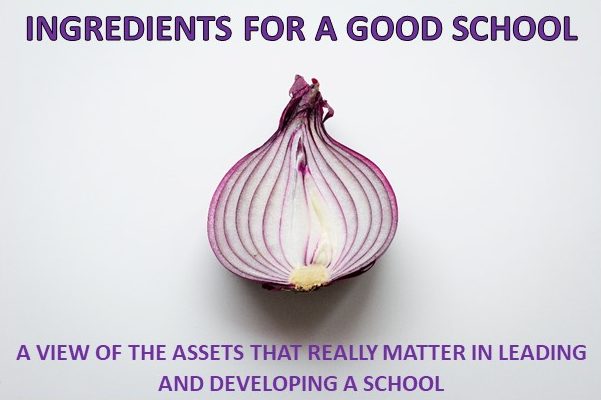Rambling about teaching and education!
Pieces of Paper … or … What is Education all about?

I am a great fan of Graham Norton. For those of you who don’t know him, he is the presenter of the BBC programme “The Graham Norton Show”. His sardonic, yet amusing style in interviewing big names in showbusiness, keeps you chuckling throughout. There is no subject or question that is sacred. It really is compelling viewing. At the end of the show he invites a member of the audience to tell an amusing story about themselves sitting in the big red chair. If the story is feeble, he has a lever which tips the story-teller backwards, much to the amusement of the guests and studio audience.
So why am I telling you all this? A week ago, one young lady decided to venture onto the chair to share her favourite story, despite the inevitable bantering from Graham. The story line went something like this.
Graham Norton: “Hello. Please tell us who you are and where you come from?”
Jane (name is fictitious): “I am Jane and I live in London.”
Graham: “What do you do for a living?”
Jane: “I have just finished University.”
Graham: (in a mocking tone) “Oh we have a clever one here! What subjects did you do at University?”
Jane: “Geography and German.”
Graham: (rolling his eyes) “Geography and German…mmm… Now you have your degree what are you going to do with it?”
Jane, “I have no idea.”
Graham (sarcastically), “Another waste of her parents’ and tax-payer money!” With that, he tipped her over, before she even got to tell her story!
What is Education all about?
Now I get to my point! What is education all about? I am sure there are millions of very cogent answers but I believe that we should all question our views of what it is really all about. Has actual learning become lost in our quest for children and young adults to “get” pieces of, in some cases, worthless paper? I continually hear of the number of A* someone has received in the IGCSE examinations, or the number of A-levels that a person has written, or better still the fact that someone has “done” a degree at university. And then what? Why then do I continually hear from captains of industry about how irrelevant and unprepared school leavers and graduates seem to be in the world?
Please don’t get me wrong? Universities and schools are very important and their “pieces of paper” have a vital role in society. But isn’t there a need to review the manner in which children are taught, how they are evaluated and in many cases labelled? Shouldn’t schools be more than simply “paper mills” for those who can recite facts? Surely there are better, more relevant and exciting ways of educating our children so that they become successful, contributing adults to society? I am pleased to note that many international curriculums are understanding this. The IBO with their personal profiles and units of inquiry-based learning and Cambridge with its active learning processes are moving towards real education. This is certainly heartening! The reality is that education is evolving on a daily basis and we all need to keep abreast of the changes. Sadly, many systems are being left behind.
Back to Jane! My hope for her is that she eventually finds something she is passionate about. Most probably she will have to retrain and use some of the incidental skills, (not covered in the courses she took), she learnt at university to help her become relevant in her new-found direction in life.
More rambling about Education …..

I heard an account of an international school owner, who likened his teachers to “onions” in his first meeting with his new staff.
“Wow, what a compliment!” was my first response. I thought how appropriate the analogy of an onion was – being multi-layered and adding so much flavour to food. I imagined teachers with their individual layers of talents and skills, adding so much to the lives of young people.
But what came next was both shocking and perplexing. It reflected something that is so wrong in some schools. The school owner proclaimed: “Teachers, like onions can be easily discarded and you can simply go to the market and get more if you need them!”
I have no idea why a person who invested so much money in infrastructure and recruitment and wanted to develop a sustainable school business, would have this sort of approach towards the very people who could make or break his enterprise. Perhaps his intention was to intimidate his teachers so that they would simply do as they were told. Was he insecure in dealing with professionals? Maybe he had no understanding of people or had a one-dimensional view of education. It was not surprising that, despite this school being well-resourced and having good physical facilities, it was eventually closed and no longer exists.
What then are the ingredients of a successful school? In this writer’s opinion, there are five important pointers:
The Teacher
The teacher is the most important asset and resource at any school. A good teacher is a rare jewel and must be appreciated, cared for and valued. Not every person can be a teacher. I have always believed that teaching is a calling. Sadly, too many teachers are never allowed to sparkle and be polished. A board or school owner that cares about their teachers allows for continual teacher development. More importantly, motivation is dependent upon the amount of interest shown in the personal welfare of their most valued asset. This leads me to the next ingredient…
Leadership, leadership, leadership
- Leadership is often confused with management, dictating, administrative processes and policy adherence. Rather, education leadership is about facilitation, development, appraisal and encouragement. Education leaders are skilled, open-minded and life-long learners. Society and consequently education, is developing at an amazing rate. If an education leader falls behind or fails, the school does too.
Communication!
- A successful school communicates effectively with its teachers, parents, pupils and stakeholders. Communication is not simply meetings, newsletters and messages. If fact, those are probably insignificant compared with the school showing every child that he or she is important. It is important to demonstrate that the school is actually effective and relevant… and this goes back to the teacher and teaching. A school does not become sustainable because of what people are told. Parents need to see a school “walk its talk” and trust its processes.
Resources
- Of course, every school has to work within a budget! Resources in some cases can limit what schools are able to do. If schools are not prepared to invest and keep a budget for resources, the consequences can be dire. Does the school have sufficient resources to accommodate the needs of modern education? Are the resources used purposefully? Parents are well aware of the limitation or otherwise of a school’s resources.
Aesthetics
- A clean, well-kept school is enticing. Some schools have lovely facilities but on closer inspection, the school is tatty and dirty. Reception areas, facilities and classrooms should be inviting and look professional. This does not necessarily mean huge investments but it really means caring for the learning environment.
You may say, “Yes, but what about the cost of school fees?” Of course, parents will send their children to schools whose fees they can afford. Ultimately, though, parents are looking at value for money. Parents understand what constitutes a good education. Some very dedicated parents will do without to make sure that their children can have the best.
The Type of School!
What about about the gimmicks that some schools employ to market themselves? My answer is simple – intelligent parents can see through a ploy used simply to increase enrolment. How can a school call itself an “International School” when there is nothing international about it?
My pet hate are those schools who call themselves “British Schools” or “American Schools” but apart from a Head Teacher who may or may not have taught in the UK and the school using text books printed in that country, there is no semblance of “Britishness” about the school. Indeed, there is also confusion about which British Curriculum is used! Is it the National Curriculum of England or that of Wales or Scotland or Northern Ireland or indeed the Cambridge international curriculum? On even closer inspection some schools do not even have the fundamentals of a reading or writing or even a mathematics programme. It makes you think doesn’t it?
Crucially, starting, running and owning a school is a huge responsibility. Many young lives and futures are at stake! Teachers and school leaders always determine a school’s success or failure.